第22章
In an instant Courtland had regained complete possession of himself.His distracting passion--how distracting he had never before realized--was gone! His clear sight--no longer distorted by sentiment--had come back; he saw everything in its just proportion--his duty, the plantation, the helpless freedman threatened by lawless fury; the two women--no longer his one tantalizing vision, but now only a passing detail of the work before him.He saw them through no aberrating mist of tenderness or expediency--but with the single directness of the man of action.
The shot had clearly been intended for Cato.Even if it were an act of mere personal revenge, it showed a confidence and security in the would-be assassin that betokened cooperation and an organized plan.He had availed himself of the thunderstorm, the flash and long reverberating roll of sound--an artifice not unknown to border ambush--to confuse discovery at the instant.Yet the attack might be only an isolated one; or it might be the beginning of a general raid upon the Syndicate's freedmen.If the former he could protect Cato from its repetition by guarding him in the office until he could be conveyed to a place of safety; if the latter, he must at once collect the negroes at their quarters, and take Cato with him.He resolved upon the latter course.The quarters were half a mile from the Dows' dwelling--which was two miles away.
He sat down and wrote a few lines to Miss Dows stating that, in view of some threatened disturbances in the town, he thought it advisable to keep the negroes in their quarters, whither he was himself going.He sent her his housekeeper and the child, as they had both better remain in a place of security until he returned to town.He gave the note to Zoe, bidding her hasten by the back garden across the fields.Then he turned to Cato.
"I am going with you to the quarters tonight," he said quietly, "and you can carry your pistol back to the armory yourself." He handed him the weapon.The negro received it gratefully, but suddenly cast a searching glance at his employer.Courtland's face, however, betrayed no change.When Zoe had gone, he continued tranquilly, "We will go by the back way through the woods." As the negro started slightly, Courtland continued in the same even tone:
"The sulphur you smelled just now, Cato, was the smoke of a gun fired at YOU from the street.I don't propose that the shot shall be repeated under the same advantages."The negro became violently agitated."It was dat sneakin' hound, Tom Higbee," he said huskily.
Courtland looked at him sharply."Then there was something more than WORDS passed between him and you, Cato.What happened? Come, speak out!""He lashed me with his whip, and I gib him one right under the yeah, and drupped him," said Cato, recovering his courage with his anger at the recollection."I had a right to defend myse'f, sah.""Yes, and I hope you'll be able to do it, now," said Courtland calmly, his face giving no sign of his conviction that Cato's fate was doomed by that single retaliating blow, "but you'll be safer at the quarters." He passed into his bedroom, took a revolver from his bedhead and a derringer from the drawer, both of which he quickly slipped beneath his buttoned coat, and returned.
"When we are in the fields, clear of the house, keep close by my side, and even try to keep step with me.What you have to say, say NOW; there must be no talking to betray our position--we must go silently, and you'll have enough to do to exercise your eyes and ears.I shall stand between you and any attack, but I expect you to obey orders without hesitation." He opened the back door, motioned to Cato to pass out, followed him, locked the door behind them, and taking the negro's arm walked beside the low palings to the end of the garden, where they climbed the fence and stood upon the open field beyond.
Unfortunately, it had grown lighter with the breaking of the heavy clouds, and gusty gleams of moonlight chased each other over the field, or struck a glitter from standing rain-pools between the little hillocks.To cross the open field and gain the fringe of woods on the other side was the nearest way to the quarters, but for the moment was the most exposed course; to follow the hedge to the bottom of the field and the boundary fence and then cross at right angles, in its shadow, would be safer, but they would lose valuable time.Believing that Cato's vengeful assailant was still hovering near with his comrades, Courtland cast a quick glance down the shadowy line of Osage hedge beside them.Suddenly Cato grasped his arm and pointed in the same direction, where the boundary fence he had noticed--a barrier of rough palings--crossed the field.
With the moon low on the other side of it, it was a mere black silhouette, broken only by bright silver openings and gaps along its surface that indicated the moonlit field beyond.At first Courtland saw nothing else.Then he was struck by the fact that these openings became successively and regularly eclipsed, as with the passing of some opaque object behind them.It was a file of men on the other side of the fence, keeping in its shelter as they crossed the field towards his house.Roughly calculating from the passing obscurations, there must have been twelve or fifteen in all.